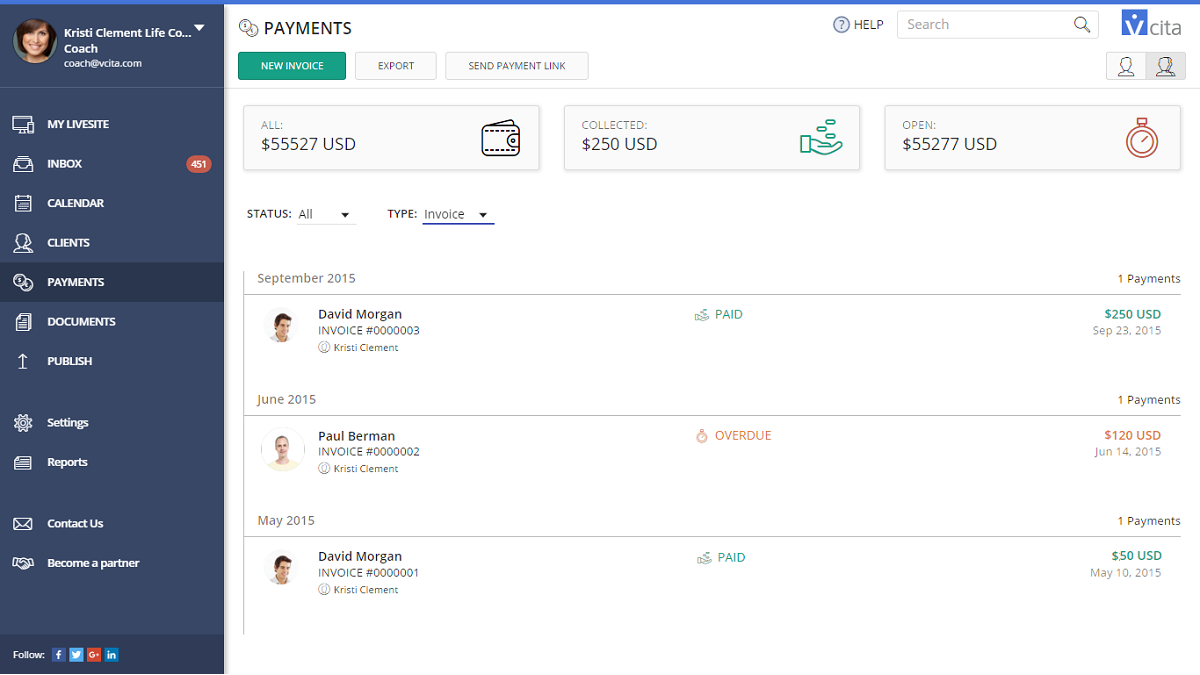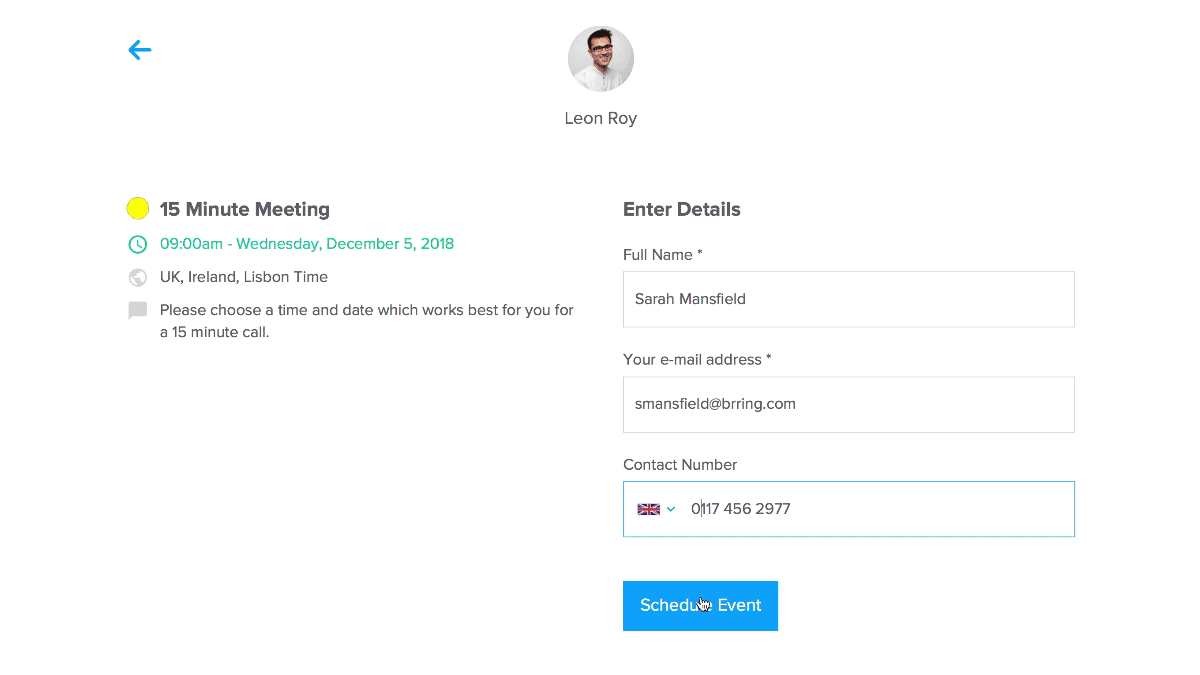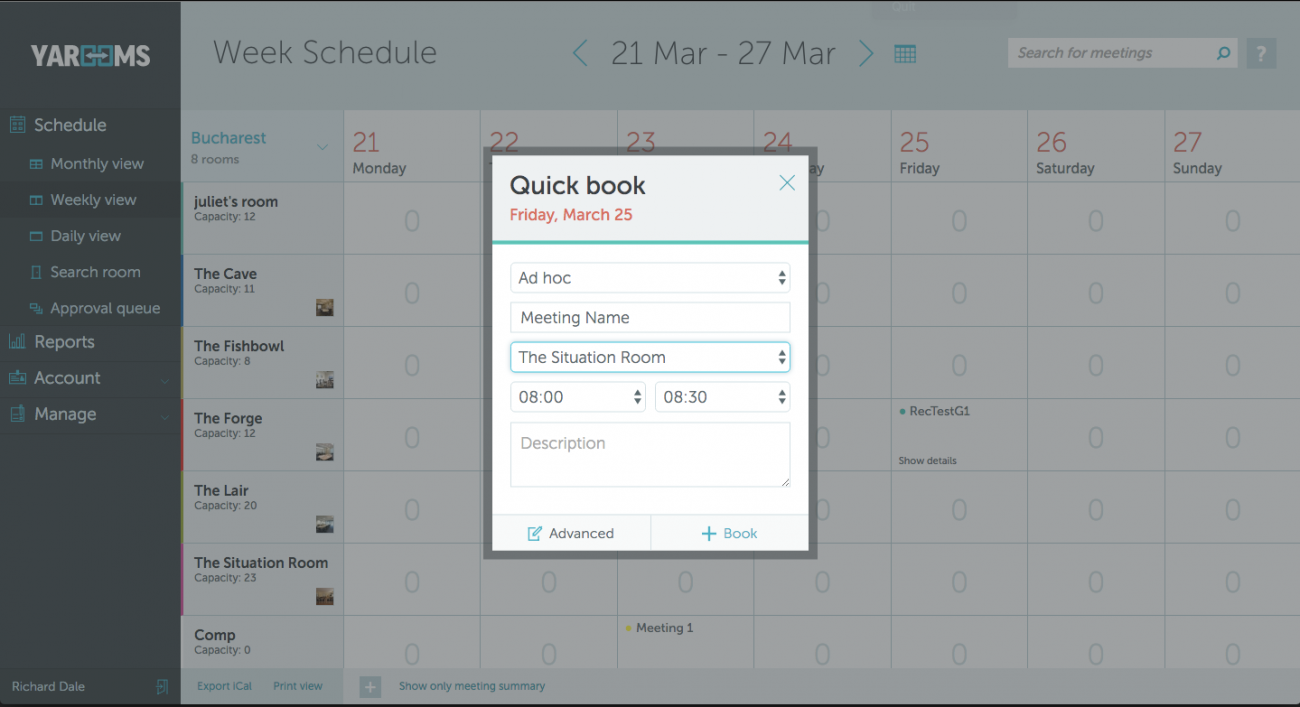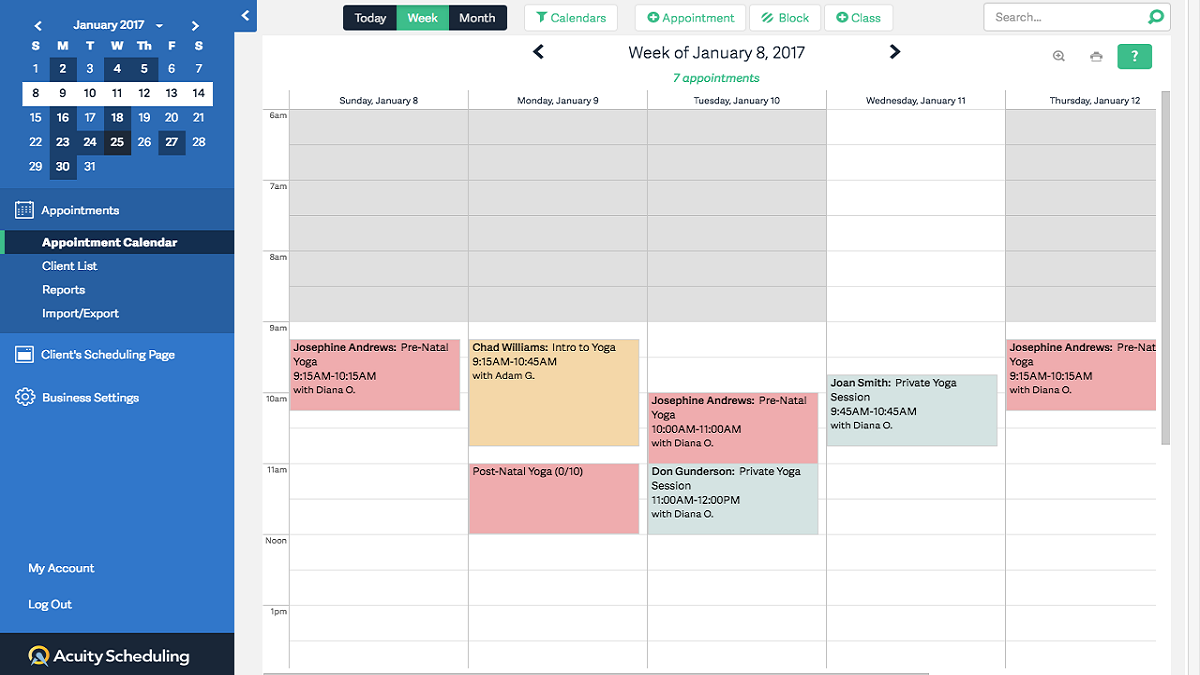Secretaries can handle manual appointment scheduling processes just fine, but to what extent? Let’s take field service businesses, for instance. For low-scale, upstart companies with only a handful of technicians to accommodate a few clients, it’s completely reasonable to handle things manually. Through crude in form, the matrix method where employees’ name, availability, and skills are listed, works. It provides enough information to allow the dispatcher to organize work orders and send technicians on the job.
While it works, things will start to get out of hand when the operation scales up. Both the pen-and-paper and spreadsheet methods will become nightmarish when customers start to pour in or jobs become more complex. It might even become impossible to accommodate all of them. This translates not only to missed opportunities but also unhappy customers and employees.
The above scenario is relatively easy to avoid these days, thanks to the vast array of appointment scheduling software to choose from. These tools can automate the entire processes of receiving and booking orders as well as assigning workers to the job. But that’s only scratching the surface of what this type of solution can do. This article explores all aspects of appointment scheduling tools, from definition to benefits to trends.
What is Appointment Scheduling Software?
Appointment scheduling software is a tool that allows businesses and professionals to better manage the schedule of their bookings and appointments. Also known as online booking software and appointment booking software, these can be either a desktop-based or web-based application.
What does appointment scheduling software do?
Appointment scheduling software development aids users in managing their scheduling, booking, and appointment operations. Businesses use this to automatically arrange meetings and appointments as well as schedule tasks. Some of its standard features include calendar integrations, appointment reminders, and customer and employee management. It also prevents various appointment-related issues like double booking and booking on unavailable dates/times. Moreover, its feature-rich appointment scheduling tools offer revenue processing, payment integration, and mobile support.
Who does appointment scheduling software help?
Appointment scheduling is the starting point of client interaction for different types of businesses, such as the following:
- Field service such as pest control, house cleaning, and landscaping.
- Education sectors like tutors, special classes, and universities.
- Foodservice like restaurant reservations and catering services.
- Fitness and recreation, such as personal fitness trainers, gyms, and yoga studios.
- Financial services, like tax consultants and accountants.
- Health and beauty, such as medical practitioners, spas, and salons.
- Auto maintenance like mechanics and car washes.
List of Best Appointment Scheduling Software
- Acuity Scheduling: It’s an easy-to-use feature-packed scheduling solution for individuals and businesses of any size. With its features and functionalities, it makes booking an easier and seamless process. You can easily view your availability in real-time, ensure that no appointment is missed through getting an automatic notification every time someone makes a booking, and send customized reminders, confirmations, as well as follow-ups on clients. You can also use this solution to accept online payments. The product’s pricing plans range from $15 – $50 when billed monthly. If you’re a single user, you can avail of the free version. A free trial is also available.
- SimplyBook.me: This booking solution is accessible online and can be used by businesses in any industry. Since it is web-based, clients can book appointments anywhere they are as long as there’s an internet connection at any time of the day or night. It also features an automatic notification when a booking has been made so businesses don’t miss any appointment. Additionally, its booking page can be customized and added to the business’s Facebook page or webpage. It also integrates with POS systems, allowing users to accept payments in cash or credit cards. The pricing plans range from about $9 to $60 per month. A free plan and a free trial are also available.
- vCita: This system offers a suite of products, including a booking solution for solopreneurs and small teams. It features an online calendar and scheduling that allows users to manage their appointments, events, sessions, and classes. You can customize and display the calendar on your website for your clients to use for requesting appointments. A self-service portal is also available. It gives your clients the freedom to make a booking, register for your events, and even make payments without any assistance from your team. The pricing plans for this software range from $29 to $99 per month. A free trial is also available if you want to check out the product’s features.
- AppointmentCare: An online appointment scheduling solution for freelancers, solo entrepreneurs, and small teams. It is packed with features, such as automatic reminders, appointment scheduling, overlapping appointments, staff calendars, recurring appointments, and a lot more for a more time-efficient and easier booking. You can try the features for free for 30 days and upgrade to a paid plan if the solution meets your requirements. The pricing plan ranges from about $15 to $60 per month.
- YouCanBook.me: A booking platform created to integrate with your Google and iCloud Calendars. It lets users embed booking pages on their websites and social media networks so customers can schedule appointments conveniently. With this platform, users have access to tools such as appointment reminders, appointment padding, and credit card payment processing. It also allows users to create separate booking profiles as well as personalize scheduling pages. Businesses can even send follow up emails to their clients directly from the platform for a seamless user experience. To top it all off, YouCanBook.me offers a free plan which is perfect for businesses with limited budgets. In case you want to upgrade its functionalities, the vendor offers a Single Pricing Plan that costs $10/calendar/month.
- YArooms: A solution designed explicitly for booking rooms, making it ideal for hospitals, schools, and shared offices. With this platform, you can easily see what room is available and what is not. Through this, room booking conflicts can be avoided. It also offers an ability to filter individuals who can use and view particular facilities. What’s more, every YArooms account comes with a Door App that can be installed on your tablet, iPad, Kindle Fire, and IAdea’s Signboard. These will serve as the extension of the software and can be mounted on the door of the room. For pricing, the vendor offers a plan that you can pay as you go, three different plans that are billed monthly, and a quote-based plan. A free trial is also available.
- 10to8: An online appointment scheduling tool that helps HR managers by simplifying most of their workloads. It can automate a significant amount of daily activities, which frees employees to do more of their core tasks. The system is also good at scaling with your organization, thanks to some of its highly flexible features, thereby making it a good appointment scheduling software for small and large businesses alike. Furthermore, the system has attractive booking forms to offer, which makes your appointment interface both professional-looking and user-friendly. There are five enterprise plans available for 10to8, which starts at $9.6/month. There’s a free forever version as well.
- Calendly: An intuitive, simple, yet powerful scheduling software that helps save time, improve service quality, and expedite sales. With this, you no longer have to deal with the traditional email and phone tags methods. The system lets hot prospects connect immediately and ensure that your employees won’t miss them. It’s fully compatible with desktop, tablets, and smartphones, which eliminates any compatibility issue with your invitees. Some unique features of Calendly include prevention of last-minute meetings, secret event types, and setting buffer times between appointments. The software offers straightforward pricing schemes that start at $10 per user/month.
- Bookeo: An online scheduling and appointment management tool for different business types and individual users. In its early days, the system caters exclusively to small businesses like therapists and car wash services. However, they have since expanded to include a lot more industries to their target audience. Bookeo also allows booking straight from your website or even Facebook page. The app is also optimized for mobile use, making it an excellent solution for those who are always on-the-go. The software is available in several pricing plans, which starts at $14.95 per user/month.
- Wellyx : is an easy-to-use appointment scheduling software that helps businesses like gyms, yoga studios, dance studios, spas, salons, and barbershops manage their bookings easily. You can book, schedule, and track client details, as well as minimize scheduling conflicts with Wellyx. It is a useful, intuitive tool for fitness and wellness businesses that want to save time and enhance customer experience. It is simple to view your schedules on a calendar, while customers can book through a website or the mobile app. Wellyx offers flexible pricing plans. The price starts from $79 per month and is based on your desired features and plans, whether you are a startup or have a big team.
- Appointment Plus: An appointment scheduling software that operates in over 16 countries. It has over 500 configuration options for users to tinker with to make the solution tightly conforming to their needs. Some of the basic parameters you can alter include waiting lists, user access level, room booking, and availability time. It also features an integrated payment and credit card processor for faster business flow. Furthermore, a Book Now button is available for you to add to your website, which allows potential customers to book on their own. Appointment Plus offers four-tiered pricing plans starting with a bronze package for $49/month.
- Appointlet: An appointment scheduling tool whose general purpose is to help HR managers and officers to carry out more streamlined scheduling operations. It removes the need for answering each and every client or interviewee. That’s because the tool can act like a secretary who will let clients book for themselves. It also factors in the time zone differences between you and your clients by providing a time zone translator. With this feature, you only have to add the preferred time and location, and the software will handle the rest. There are only two pricing plans for this software, one of which is free, and the other starts at $10 per month/member.
- MarketBox: The only appointment-scheduling software specially designed for businesses offering services in the home or in the field. The platform provides a seamless and elegant booking process that allows customers to easily book and pay for their appointments online. MarketBox’s “smart matching” technology helps coordinate providers with clients, resulting in a more efficient scheduling process that reduces dead and travel time between appointments. The platform can be easily configured to meet the needs of any business, with flexible payment options for clients and online payments processed securely through Stripe. MarketBox also seamlessly integrates with any system for easy data flow and insights. Prices start at $39 per month, and there is a free 14-day trial period available.
- Appointy: This is an easy-to-use, feature-rich online scheduling software that has been designed to best suit the needs of an individual and a wide array of business types. Appointy lets you offer a seamless booking experience by showcasing the real-time availability of services, staff profiles, and important business details on the self-service booking portal. Clients can also prepay for their appointments using Square, Stripe, or PayPal. To top it all off, there are intuitive features like calendar integrations, automated notifications, inbuilt marketing and CRM tools, multi-channel booking integrations, email/ text/ booking portal customization, and so much more. The pricing plans for this software start from $19.99 per month. The best part? You can test it out for your business for free in their 14-day trial!
Features of Appointment Scheduling Software
Self-booking
This software category usually allows appointment scheduling to be done online. Meaning, it’s easier for customers to access business at their most convenient time. Customers can also book, follow-up, or reschedule their appointments by themselves. Most appointment scheduling software has intuitive, drag-and-drop interfaces that make self-service easy. Bookings are also synced throughout multiple devices.
Automated scheduling
Appointment scheduling software takes care of booking-related issues like lack of availability and double booking. The good part is that the system will also automatically take care of such issues. It will deny or confirm appointments in real-time for each booking request sent. Waitlisted customers are also automatically added to the queue whenever a booking is canceled or rescheduled.
Automatic reminders
It can send reminders to your clients when the appointed time draws near. The notification is usually sent through email or text, and some apps allow the confirmation of the reminder. This allows users to prevent no-shows.
Customer scheduling
Some appointment-scheduling tool provides customers with the option of booking an appointment with the personnel of their choice. To do this, the app shows them a calendar of all the professionals in an organization so that clients would be able to see their availability and other details. Customers then pick an appointment with anyone available at the time they need the service.
Payment gateway integration
It’s becoming common for appointment scheduling software to integrate with a popular payment gateway to accelerate the process of getting paid. Online payment tools such as PayPal are popular in this niche. This feature also allows the collection of the down payment if there is one.
Promo and deals management
To improve customer engagement, many businesses offer deals and promos. Some appointment-scheduling tool helps with this aspect. It can automatically calculate the promotional discounts availed by customers and even show them on receipt. The system also helps advertise such deals by providing an appropriate interface for customers to see.
Types of Appointment Scheduling Software
Appointment scheduling solutions can be more or less grouped into two categories, SaaS/web-based, and desktop applications.
- Desktop Applications. This type of appointment scheduling app is usually licensed and installed on users’ computers. It’s feature-rich and is usually easy to customize. Being an in-house tool, however, means that it doesn’t normally give customers access to booking so it has to be done by employees. It also requires the attention of normal on-premises solutions such as manual upgrade, maintenance, and support.
- SaaS/Web-based. This is the more popular approach, especially among freelancers and businesses with a large network. It’s usually hosted in a software solution or embedded in a professional website where customers can see them and make an appointment by themselves. One subtype of this is the CAM (Customer Appointment Management) software, which is usually the go-to app of large mobile workforces. This SaaS solution automatically does the scheduling and routing of in-house service appointment arrivals.
Benefits of Appointment Scheduling Software
Increased bottom line
Scheduling is an important but tedious task. Thus, employees usually have to spend a lot of time on them to ensure everything goes smoothly. This eats up some of the time out of your workers’ daily shift. With the use of appointment scheduling software, the burden of managing appointments and related admin tasks is no longer on them, effectively making them more productive. Plus, this type of tool can usually be integrated with other systems like billing and payment gateway solutions, which expedite the process of you getting paid.
Reduced instances of no-shows
No-shows are one of the biggest waste of time and effort for appointment-based businesses. The use of appointment scheduling software can minimize the chances of this happening through reminders and notifications. This way, no matter how busy your customers are, they will not forget about their appointment with you. There are some apps that feature appointment confirmation through reminders as well.
Happier customers
If your customers can easily book their appointments with you, they’ll no doubt enjoy a better user experience. For them, this means that they no longer need to wait in a queue, scheduled during business hours, nor call to know if you’re available. This is attractive to new and existing customers alike. Appointment-related issues are also alleviated and more easily remedied. For instance, most appointment scheduling tools ensure that no double-booking occur. Also, if there are scheduling problems, you will be notified earlier, and thus, rescheduling or other solutions can be done.

Some appointment scheduling tools, like vCita, integrate with payment solutions to improve money flow.
Factors to Consider When Buying Appointment Scheduling Software
There’s a lot of appointment scheduling tools out there, and some of them offer similar features. Because of that, choosing which ones are the best for your business might be hard. While this is true, there are still key factors to consider when browsing for this type of solution. Here are some of them.
Your business’ nature
This comes first. You must first understand your business, and conversely, the software you’ll choose must also understand yours. This means that it has built-in features for the services you offer, along with the flexibility to alter some of their aspects if necessary. For instance, salons and spas have workflows that are different from other service-type businesses. Therefore, owners of such establishments must check if the scheduling tool supports that unique aspect of their business.
Accessibility and interface
Depending on your business, you may want an online booking solution instead of the desktop version. Therefore, you must first check how accessible they are from a customer’s point of view. You must check how fast it loads or if the interface is clutter-free and mobile-friendly. Check the cloud storage where all your data will reside as well and research if it’s a reliable one. See if it has a good uptime rate, security features, customer support, etc.
Additional features
The need for this is totally up to you to determine. If you only need a very simple appointment scheduling software, you might even opt-in to free ones. However, if not, then make sure to check if it has all the features you need. At the very least, the software of your choice must allow the additions of necessary functions later on, either through integration or add-ons.
The Latest Appointment Scheduling Trends
Like other types of solutions, appointment scheduling software has also undergone big development and changes throughout the years. Some of the noteworthy trends going around this software category are as follow:
Less free solutions available
While it’s probable that free appointment scheduling software won’t vanish entirely, they are more likely to lessen in number. That’s because more vendors are thinking that offering their system for free won’t let them sustain it. They need revenue to continuously improve their product, plus they also have to maintain them and provide customer support.
More mobility support
The increasing use of smartphones, tablets, iPads, and other mobile devices means more market in that certain circle. Thus, most vendors make sure that they won’t miss out as well. Not only that, but the use of online solutions to book appointments is becoming more popular too. And with the majority of online activities being done online, those that don’t provide mobile support are at a big disadvantage.
Increased adoption
More businesses, especially the service-based companies, are using appointment scheduling software to boost their bottom line. Companies understand that adopting this solution to their workflow will help them save time, reduce costs, and improve their employees’ productivity.
Potential Issues with Appointment Scheduling Software
While a good solution, appointment scheduling has its downs as well. Here are some of the potential problems related to this software category:
Premature launch
An appointment is the starting point of business for any organization. So, it’s understandable why they’ll want their software to go live soon after purchase. However, this could lead to all sorts of trouble if the system’s configuration is off. Maybe the employees don’t know how to use it yet. Perhaps, the resources and integrations aren’t properly in place. That’s why it’s always ideal to ensure that the system works accordingly by not rushing things and doing some tests first. This leads us to the next issue.
Failure to thoroughly test the system
It’s highly advisable to test the system first. Most businesses have the common sense to do this. However, some just do a series of simple mock appointments and see if they receive it. Businesses must ensure that they don’t miss leads by doing a test on all sorts of scenarios. They must try to double book or see if the software sends a notification on time. The integrated apps must also be tested. Does the payment gateway work? If you’re using a CRM system, does it relay the information there? Did the newly-made appointment got reflected on the calendar? These are just some of the real-life case scenarios that businesses must test to see if their appointment scheduling software holds.
Make the Most Out of Your Appointment Scheduling Software
To some businesses, appointment scheduling is the start of their customer journey. Therefore, it must be treated with the utmost consideration. They must ensure that their scheduling tool won’t repel customers with its complicated looks, lags, or downtimes. Even other types of businesses that don’t entirely rely on scheduling to get customers will also gain a lot from this type of solution.
The first step in maximizing the effects of appointment scheduling software is to ensure that you choose the right one for your business. We’ve listed a few common factors that are typically found in good scheduling tools. However, you must also take appropriate measures to ensure that the pricing, main and additional features, integration support, etc. are all suited to your business. We hope that this article provided you with insights that will help you in decision-making.



